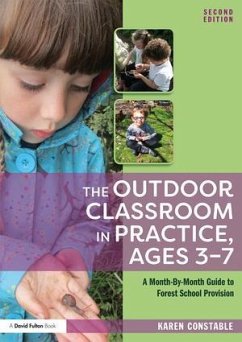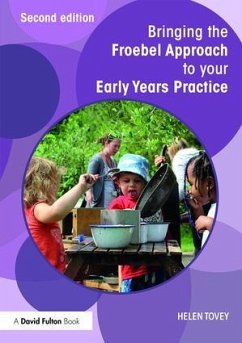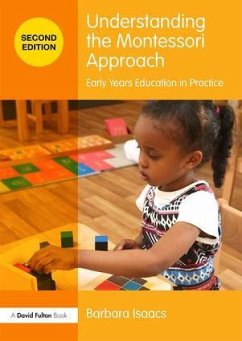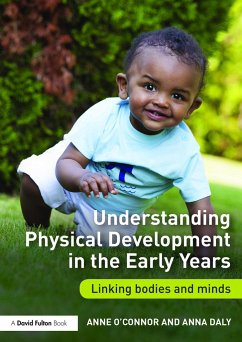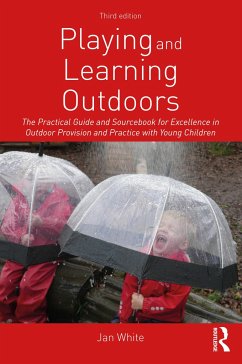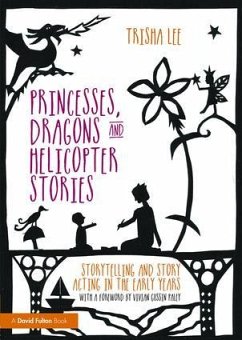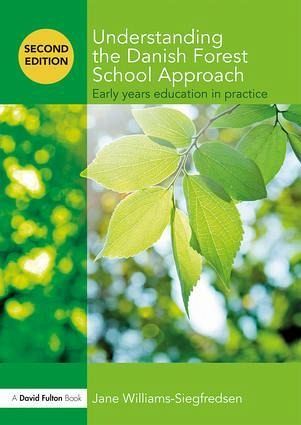
Understanding the Danish Forest School Approach
Early Years Education in Practice
Versandkostenfrei!
Versandfertig in 6-10 Tagen
34,99 €
inkl. MwSt.
Weitere Ausgaben:

PAYBACK Punkte
17 °P sammeln!
This fully revised edition of Understanding the Danish Forest School Approach is a much needed source of information for those wishing to extend and consolidate their understanding of the Danish Forest School Approach. It enables analysis of the essential elements of this particular approach to early childhood teaching and the relationship it holds with quality early years practice.Describing the key principles of the Forest School Approach to early childhood, and heavily supported with practical examples and case studies, each chapter ends with highlighted key points, followed by reflections ...
This fully revised edition of Understanding the Danish Forest School Approach is a much needed source of information for those wishing to extend and consolidate their understanding of the Danish Forest School Approach. It enables analysis of the essential elements of this particular approach to early childhood teaching and the relationship it holds with quality early years practice.
Describing the key principles of the Forest School Approach to early childhood, and heavily supported with practical examples and case studies, each chapter ends with highlighted key points, followed by reflections on practice to aid discussion and reflection on own practice. Including a new chapter on the curriculum, this text explores all aspects of the approach including:
The geographical, historical, social and cultural influences that have shaped the philosophy and pedagogy of the early years setting in Denmark.
The people and theories that have influenced and supported the practices of using the outdoors with children.
An analysis of the learning environments, their risks and challenges and what a learning environment is made up of.
The Danish early years curriculum; the areas of learning and the way pedagogues facilitate the learning processes.
Parental, political and research perspectives on the approach and the sustainability of its future.
Understanding the Danish Forest School Approach highlights the key ideas that practitioners should consider when reviewing and reflecting on their own practice, and outlines the national appraisals and evaluations of the curriculum. Providing students and practitioners with key information about a major pedagogical influence on early years practice, this is a vital text for students, early years and childcare practitioners, teachers, early years professionals, children's centre professionals, lecturers, advisory teachers and setting managers.
Describing the key principles of the Forest School Approach to early childhood, and heavily supported with practical examples and case studies, each chapter ends with highlighted key points, followed by reflections on practice to aid discussion and reflection on own practice. Including a new chapter on the curriculum, this text explores all aspects of the approach including:
The geographical, historical, social and cultural influences that have shaped the philosophy and pedagogy of the early years setting in Denmark.
The people and theories that have influenced and supported the practices of using the outdoors with children.
An analysis of the learning environments, their risks and challenges and what a learning environment is made up of.
The Danish early years curriculum; the areas of learning and the way pedagogues facilitate the learning processes.
Parental, political and research perspectives on the approach and the sustainability of its future.
Understanding the Danish Forest School Approach highlights the key ideas that practitioners should consider when reviewing and reflecting on their own practice, and outlines the national appraisals and evaluations of the curriculum. Providing students and practitioners with key information about a major pedagogical influence on early years practice, this is a vital text for students, early years and childcare practitioners, teachers, early years professionals, children's centre professionals, lecturers, advisory teachers and setting managers.





